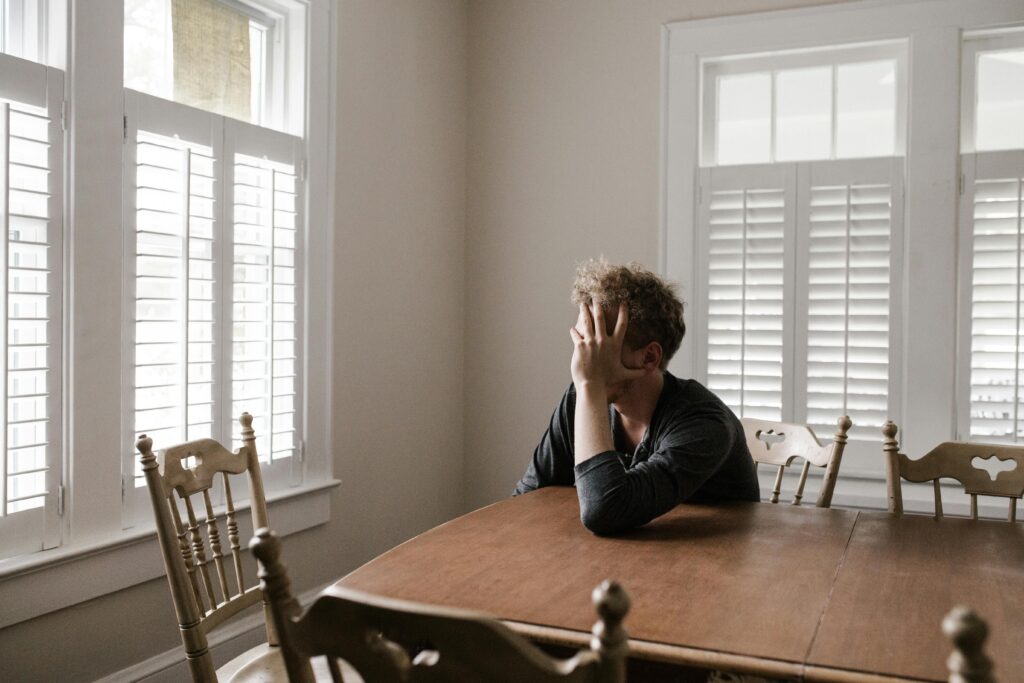Many people silently regret investing years in friendships or relationships that offered little growth or happiness. These connections often drain energy, create emotional turbulence, and delay personal development. Psychology suggests that we tend to maintain relationships due to emotional investment and fear of loneliness. But when people reflect later in life, they often wish they had walked away sooner. Prioritizing meaningful connections and setting boundaries can help avoid this hidden regret. Letting go earlier could have saved valuable time and mental energy.
Not Taking More Risks

Fear holds people back from chasing dreams or stepping outside their comfort zone. Whether it is switching careers, moving cities, or starting a business, the risk not taken often lingers. Studies show that people regret inaction more than mistakes. Those who reflect on life commonly wish they had been bolder. Playing it safe might feel comfortable, but it can prevent true fulfillment. The missed opportunity to explore potential often becomes a quiet regret.
Caring Too Much About What Others Think

Many people admit to spending too much of their lives trying to please others. This behavior stems from a desire for acceptance and fear of rejection. Over time, constantly seeking approval can cause identity loss and resentment. Psychologists note that people with high social anxiety or low self-esteem are more vulnerable to this pattern. As people mature, they often wish they had trusted their inner voice more. Living to impress others often results in a quiet, lasting disappointment.
Not Prioritizing Health Earlier

Skipping regular checkups, eating poorly, or ignoring fitness often leads to future regret. People rarely admit how much they wish they had taken better care of their bodies sooner. Preventive health habits reduce the risk of chronic diseases and improve quality of life. Once health starts to decline, many feel helpless and frustrated. Regret sets in when they realize how avoidable some conditions were. Daily choices add up, and neglect often leads to long-term consequences.
Letting Work Consume Life

Workaholism is often praised, but it leads to significant regrets later. People sacrifice family time, hobbies, and self-care for promotions or financial gains. While ambition has its benefits, excessive dedication to work can cause burnout and strained relationships. Psychological studies link work-life imbalance to lower life satisfaction. Many only realize the cost once they have missed key moments they can never get back. This silent regret weighs heavily in later years.
Read More: What You Can Finally Let Go of As You Age
Not Expressing Feelings Openly

Bottling up emotions, whether it is love, anger, or grief, often leads to internal stress. Many people wish they had been more honest with themselves and others. Expressing emotions supports mental health and builds stronger relationships. Cultural norms or fear of vulnerability often prevent people from speaking their truth. However, suppressed feelings do not disappear, they resurface in harmful ways. Over time, the words never said can turn into emotional baggage.
Ignoring Passions and Talents

People often abandon hobbies or talents due to practical responsibilities. Whether it is writing, painting, or playing music, letting go of passions creates a void. Studies suggest that engaging in creative activities boosts happiness and cognitive health. Ignoring these parts of the self to conform or survive leads to quiet dissatisfaction. Many later reflect on what might have been if they had pursued what truly lit them up. This regret grows stronger with age.
Staying in a Career They Hate

Many stick with careers that make them miserable for the sake of stability. While financial security is important, decades in an unfulfilling job take a toll. Burnout, stress, and lack of purpose contribute to mental and physical issues. Psychologists highlight the importance of aligning work with personal values. People often look back and wish they had changed paths when they had the chance. Fear of starting over holds them back, but regret builds over time.
Letting Fear Drive Decisions

Fear of failure, rejection, or the unknown leads people to settle for less than they want. Choices made from fear rarely lead to happiness. Over time, these decisions can create resentment and stagnation. Regret often stems from recognizing that courage could have changed everything. Those who consistently choose the safer path may avoid pain, but they also miss growth. Letting fear take the lead is a common but rarely confessed life regret.
Not Saying “I Love You” More Often

People sometimes assume their loved ones know how they feel, so they do not say it out loud. Later in life, many wish they had expressed love more freely. Moments pass, people die, and the chance to speak from the heart disappears. Expressing love boosts connection and emotional health for both the giver and receiver. The silence can haunt people more than any uncomfortable conversation ever could. Saying it while you can matters more than most realize.
Holding Onto Grudges

Carrying resentment or refusing to forgive often does more harm to the person holding on. Anger and bitterness create stress and block healing. Studies show that forgiveness improves mental and physical health. People later regret the years spent dwelling on past wrongs instead of moving forward. Letting go does not mean forgetting, it means freeing yourself. The peace that comes with forgiveness is often missed until it is too late.
Missing Out on Travel and Adventure

Many dream of traveling more but put it off for retirement or when they have more money. Life, however, does not always unfold as planned. Health, time, and responsibilities can limit future freedom. Travel provides perspective, memories, and personal growth. People often regret not exploring the world when they were younger and more mobile. The experiences not had become more painful than the cost ever would have been.
Neglecting Relationships With Family

Busy schedules, unresolved tension, or physical distance can weaken family ties. People often assume there will be more time to reconnect. When that time runs out, regret is heavy. Psychologists emphasize that family bonds, even complicated ones, shape our well-being. Regret often arises not just from conflict, but from indifference. Rebuilding these relationships before it is too late can prevent one of the most painful kinds of regret.
Comparing Themselves to Others

Social media fuels constant comparison, leading people to feel behind or inadequate. Many regret wasting years trying to match someone else’s success, looks, or lifestyle. Research shows that upward comparison increases depression and anxiety. Instead of focusing on personal goals, people chase someone else’s version of success. As they age, they wish they had stayed true to their own path. Envy often distracts from gratitude and self-worth.
Read More: Take These 8 Life Lessons Seriously While You Still Have the Chance
Not Being Present in the Moment

People often spend their days thinking about the past or worrying about the future. This habit makes them miss the life happening right in front of them. Mindfulness practices improve focus and reduce anxiety, yet many ignore them. Later, people wish they had paid more attention to the little moments that made up their lives. Watching a child grow, sharing a meal, or walking in nature becomes more meaningful in hindsight. Regret comes from realizing those were the real treasures all along.
Disclaimer: This article was created with AI assistance and edited by a human for accuracy and clarity.

